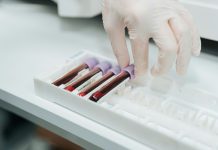
Do you know what a stroke is? It’s a severe health problem that happens when blood cannot flow to the brain.
Without blood, brain cells cannot get the oxygen they need to survive and they start to die.
This can lead to serious damage or even death. There are different types of strokes, and one of the most common is the ischemic stroke.
In this kind of stroke, a blood clot blocks a brain artery, stopping the blood flow.
To treat ischemic strokes, doctors use a procedure called mechanical thrombectomy. This procedure uses tiny mesh tools, called stent retrievers, to take out the blood clot.
It’s a very delicate process, and sometimes the blood clot breaks into smaller pieces and not all of it is removed.
When this happens, the doctors have to try again to remove the remaining pieces, which can make the procedure longer and the patient’s recovery harder.
A Stroke Study’s Findings
But, what if the design of the stent retriever could make a difference in the success of the procedure? That’s what a group of researchers in Spain wanted to find out.
They made a model of the brain arteries and used it to test different types of stent retrievers. Some had open tips, some had closed tips, and some had filter tips.
In their experiment, they performed 50 procedures with each type of stent retriever. They found out that the stent retrievers with filter tips were the most successful.
They could remove all of the simulated blood clot in one go 44% of the time. The open tip stent retrievers were successful 16% of the time, and the closed tip stent retrievers were successful 20% of the time.
Making a Difference in Stroke Treatment
The lead author of the study, Jiahui Li, a biomedical engineer, emphasized the importance of their findings. He said that it is crucial to keep improving the tools and techniques we use to treat strokes.
Each patient’s case is unique, and it requires a specific approach.
By understanding which type of stent retriever is more effective, doctors can choose the right tool for each patient. This can help improve the patient’s chances of recovery and return to a normal life.
This study is just a start. More research needs to be done, especially with actual patients. But it offers a promising direction for improving stroke treatments.
The findings might make a difference in many lives, helping patients recover faster and better from their strokes. It’s another step forward in the mission to beat strokes and save lives.
If you care about stroke, please read studies about how to eat to prevent stroke, and scientists find a breakfast linked to better blood vessel health.
For more information about health, please see recent studies about how Mediterranean diet could protect your brain health, and wild blueberries can benefit your heart and brain.
Follow us on Twitter for more articles about this topic.
Copyright © 2023 Knowridge Science Report. All rights reserved.



